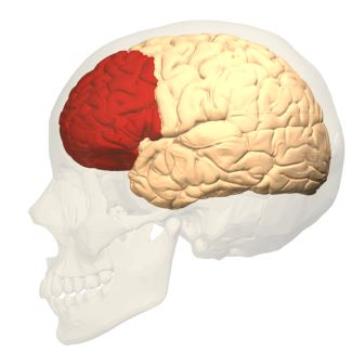Neuroimaging study: Unregulated stress can sabotage your self-control and your diet
.
Brain scans show how everyday stress can sabotage your diet (CBS News):
“As anyone who’s ever downed a pint of ice cream after a bad day at the office knows, the stresses of everyday life can sabotage self-control when it comes to diet. But why?
When people are under stress, even at modest levels, tasty food wins out over healthier options because the brain’s signal for taste is “louder” than the intention to eat healthy…The small neuroscience study of 51 people asked them to choose between foods while they had fMRI brain scans, to see how the decision-making process affected their brains.
The way to get around this wiring for choosing what tastes good over what’s healthier, Maier said, is planning. “If you know you have a stressful day and you come home, sooner or later you will make the trip to your kitchen cupboard and get that snack. Instead, you can just not buy it in the first place and not tempt yourself.”
Study: Acute Stress Impairs Self-Control in Goal-Directed Choice by Altering Multiple Functional Connections within the Brain’s Decision Circuits (Neuron)
- Abstract: Important decisions are often made under stressful circumstances that might compromise self-regulatory behavior. Yet the neural mechanisms by which stress influences self-control choices are unclear. We investigated these mechanisms in human participants who faced self-control dilemmas over food reward while undergoing fMRI following stress. We found that stress increased the influence of immediately rewarding taste attributes on choice and reduced self-control. This choice pattern was accompanied by increased functional connectivity between ventromedial prefrontal cortex (vmPFC) and amygdala and striatal regions encoding tastiness. Furthermore, stress was associated with reduced connectivity between the vmPFC and dorsolateral prefrontal cortex regions linked to self-control success. Notably, alterations in connectivity pathways could be dissociated by their differential relationships with cortisol and perceived stress. Our results indicate that stress may compromise self-control decisions by both enhancing the impact of immediately rewarding attributes and reducing the efficacy of regions promoting behaviors that are consistent with long-term goals.
To learn more:



